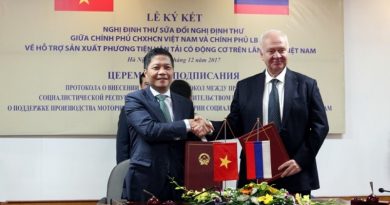What you need to know before investing in Vietnam as foreign investors
In Vietnam – with a stable political environment, law labour and operating costs, as well as promising economic prospects, Vietnam presents a dynamic market and an attractive destination for both foreign and private investors to participate in the economy.
However, when making an investment in Vietnam, foreign investors must study the feasibility of the project based on various factors. One of them is that the investor must make sure if the business sectors they plan to operate in are permitted by the laws of Vietnam or satisfy regulatory conditions and requirements.
Here are some keys note with highlight info that will be useful for you before entering the local market:
Policies and practices
What, in general terms, are your government’s policies and practices regarding oversight and review of foreign investment?
Generally, there are specific factors the government will consider before approving foreign investment in Vietnam. In particular, foreign investment restrictions are provided in Vietnam’s WTO commitments and its other international or bilateral treaties and domestic laws, including those on national security, antitrust and corporate approval.
The currency control of foreign investment is uniformly managed through the capital account system. When making indirect investment in Vietnam, foreign investors only need to open indirect investment accounts at credit institutions to carry out money transfers related to indirect investment activities.
Companies with foreign direct investment (FDI) in Vietnam are required to open accounts of direct investment capital at credit institutions to perform capital transfer transactions related to direct investment activities.
The monitoring is carried out through an information and reporting mechanism. Credit institutions where foreign indirect investors and FDI companies open accounts must comply with the regime of monthly reports prescribed by the State Bank of Vietnam (SBV). Thereby, the SBV can capture timely information on capital flows from investment activities to assess the impact of capital flows on the stability of the foreign exchange market in particular and the economy in general.
What are the main laws that directly or indirectly regulate acquisitions and investments by foreign nationals and investors on the basis of the national interest?
There is no single law governing acquisition and investment by foreign nationals and investors on the basis of the national interest in Vietnam. Foreign investors who wish to invest in Vietnam should pay attention to the specific main laws and regulations related to acquisition and investments, including:
- WTO commitments: the Schedule of Specific Commitments in Services, which describe the services Vietnam is allowing foreign service providers to access and additional conditions, including limits on foreign ownerships in a Vietnam-based company;
- the Law on Enterprises No. 59/2020/QH14 adopted by the National Assembly of Vietnam on 17 June 2020, effective from 1 January 2021, which governs the establishment, organization, restructuring, dissolution and relevant activities of companies in Vietnam;
- the Law on Investment No. 61/2020/QH14 adopted by the National Assembly of Vietnam on 17 June 2020, effective from 1 January 2021, which generally governs investment activities by or in companies;
the Law on Securities No. 54/2019/QH14 adopted by the National Assembly of Vietnam on 26 November 2019, effective from 1 January 2021; - the Law on Competition No. 23/2018/QH14 adopted by the National Assembly of Vietnam on 12 June 2018 and its implementing and guiding regulations;
- the Ordinance on Foreign Exchange Control No. 28/2005/PL-UBTVQH11 adopted by the Standing Committee of the National Assembly on 13 December 2005, as amended by Ordinance No. 06/2013/UBTVQH13 dated 18 March 2013; and
- other specific legislation applicable to foreign investment in Vietnam-based companies that engage in certain regulated areas, for example, banking, financial services and insurance.
Scope of application
Outline the scope of application of these laws, including what kinds of investments or transactions are caught. Are minority interests caught? Are there specific sectors over which the authorities have a power to oversee and prevent foreign investment or sectors that are the subject of special scrutiny?
For the accession to the WTO, Vietnam committed to open the market to foreign investments in certain service sectors under the WTO commitments. Until now, there are still some restrictions on the maximum foreign ownership percentage or the forms of investment with respect to some service sectors. For instance, advertising services require the foreign investor to set up a joint venture with an existing Vietnamese advertising company, while some transportation and banking services have an aggregate cap for the foreign ownership.
The Law on Investment is the primary domestic law for the foreign investment activities in Vietnam. It provides a list of conditional business lines, and the foreign investor must meet certain conditions to engage in such business in Vietnam. Among the service sectors on the list, the ones that are subject to special scrutiny include the services of banking, education, telecommunications with network infrastructure, publishing and healthcare.
The Law on Enterprises provides the legal framework for the corporate establishment, corporate governance and operation of an enterprise in Vietnam.
Definitions
How is a foreign investor or foreign investment defined in the applicable law?
Under the Law on Investment, a ‘foreign investor’ means an individual holding a foreign nationality or an organization established under foreign laws making business investment in Vietnam. However, the term ‘foreign investment’ is not defined in the Law on Investment. Instead, the Vietnamese lawmakers introduced the term ‘business investment’, which is generally defined as an investor investing capital to do business. This term is broadly described as investment activities conducted by investors, including foreign investors, Vietnamese investors, or foreign-invested business organizations in Vietnam.
Special rules for SOEs and SWFs
Are there special rules for investments made by foreign state-owned enterprises (SOEs) and sovereign wealth funds (SWFs)? How is an SOE or SWF defined?
Vietnamese law does not provide any specific definitions or any special rules applicable to foreign SOEs and SWFs. Foreign SOEs and SWFs are accordingly responsible for complying with investment regulations under Vietnamese law, which all foreign investors must comply with while investing in Vietnam.
Relevant authorities
Which officials or bodies are the competent authorities to review mergers or acquisitions on national interest grounds?
Under the Law on Investment, if a foreign investor would like to acquire shares or contributed capital in a Vietnam-based company, it should obtain written approval for this acquisition from the Department of Planning and Investment where the target company is located, if: the target company is engaging in any business line that is conditional for foreign investors and the share acquisition or capital contribution by the foreign investor results in an increase in the foreign ownership ratio of this company; the foreign investor acquires over 50 per cent of the shares of the target company; or the foreign investor acquires shares in a target company with the right to use land plots located on islands, border or coastal areas, or other areas affecting national defense and security.
Notwithstanding the above-mentioned laws and policies, how much discretion do the authorities have to approve or reject transactions on national interest grounds?
If foreign investors have satisfied all legal requirements applicable to their investments in Vietnam, the authorities theoretically are not allowed to reject a transaction conducted by the foreign investors on national interest grounds. In particular, foreign investors will be permitted to invest in all sectors and industrial areas that are not prohibited under the Law on Investment. However, in practice, the authorities have the sole discretion to approve or reject any transactions conducted by the foreign investors if they decide that these foreign investors have not met their requirements based on their view. The Law on Investment, effective on 1 January 2021, expressly stipulates the investment policies relating to national defense and security for considering and approving transactions conducted by foreign investors.
Source: vietnaminsider.vn







